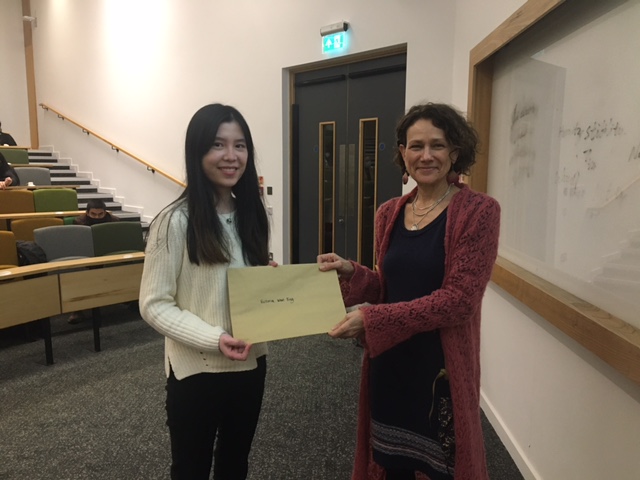My name is Victoria, and I was enrolled in the International Foundation Programme (IFP) 2020/21. I am currently pursuing a degree in Economics at the University of Kent. My experience on the IFP has been a fruitful one – a course that, in hindsight, benefited me in so many ways academically.
As a preparatory course, the IFP has provided me with a preview of the general teaching and learning structures delivered at the University of Kent. Despite having to complete the course remotely due to the pandemic, I managed to benefit from the pre-recorded lectures as much as I would have in person. The IFP has created a conducive virtual learning experience for students, leaving me the impression that the university system is highly adaptive and flexible. With such flexibility, I encountered minimal disruptions throughout the course and had a rewarding learning experience. By entrusting students with the responsibility to fulfil our academic duties, the IFP has shaped me into an independent learner. The IFP offers both independent and group learning experiences, ranging from individual presentations to group debates. From these experiences, my confidence in public speaking grew, and my detestation to work in groups shrunk. As I progressed into my first year of studies, I have had many opportunities to work on group assignments; thanks to the IFP, I am no stranger to group projects and am more proactive in group discussions!
The modules taught on the IFP are tailored to the courses which students intend to pursue at a degree level, providing an opportunity to glean insights into undergraduate courses. Given this opportunity, I was able to develop fundamental understandings about Economics – a subject I had no prior knowledge of – which later led me to discover my underlying interest in the subject. More importantly, the IFP has equipped me with valuable academic skills such as writing in a formal academic style, referencing skills to avoid plagiarism, and the ability to discern credible sources. In conjunction with these skills, the IFP has introduced me to the concept of critical thinking. This concept is one that I struggled to grasp initially, but with the constructive feedback from the academic tutors, I made improvements along the way. As I grew more familiar with thinking critically, I learnt to approach issues and ideas from various perspectives. As an Economics student, I found this particularly useful because it prompts me to synthesise information, address limitations, and identify underlying issues before making decisions. Having practised these skills throughout the course, I gained proficiency in essay writing and familiarity with the expectations at degree level, thus allowing me to adapt quickly in my first year of studies.
By and large, the IFP has shaped my understanding of university life and provided me with academic knowledge that I lacked as a pre-university student. I would highly recommend enrolling in the IFP, especially for students who have just graduated from school and are interested in studying at a university.

